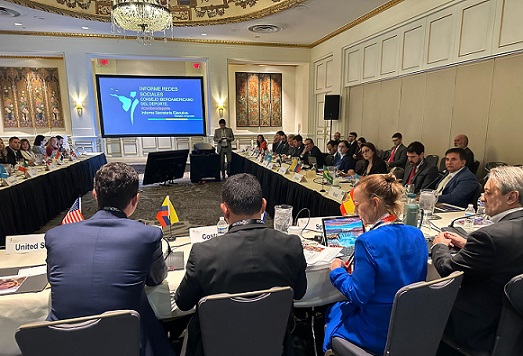Football has invaluable importance all over the world. Every four years, the FIFA World Cup captivates millions of fans who watch the matches passionately and feel the excitement of every goal. In 2026, Canada, along with the United States and Mexico, will have the honor of hosting this world-famous sporting event. However, beyond the football enthusiasm, there is a crucial question: Will this event be good for Canada?
Numbers are at stake
When it comes to organizing the FIFA World Cup, the numbers involved are astronomical. Toronto, one of the Canadian host cities, estimated the cost of hosting six matches at about $380 million. For its part, the city of Vancouver, which will host seven games, has not yet revealed an updated figure, but its initial estimate of $230 million will certainly grow, due to the addition of two more games.
These staggering numbers are not unique to Canada. Other host cities for the 2026 World Cup, such as Seattle and Santa Clara, have faced similar challenges in trying to determine the costs associated with hosting the competition. From building and renovating stadiums to security and basic services, expenses are adding up quickly.
Expected economic benefits of the 2026 World Cup
Despite the high costs, host cities also expect significant economic benefits. Toronto expects a $392 million increase in GDP, while Ontario could see an additional increase of $456 million. In addition, the event is expected to create more than 3,500 jobs and attract more than 300,000 visitors to the city.
Vancouver, for its part, is confident the seven games it will host will bring greater revenue opportunities from commercial sponsors and game-day sales. However, experts warn that economic forecasts are often overly optimistic and the actual benefits may be lower.
Related articlesThe 2026 World Cup is a historic event in North America
Impact on infrastructure and services
Beyond the direct costs and expected economic benefits, hosting the 2026 FIFA World Cup also entails challenges in terms of infrastructure and services. Both Toronto and Vancouver are undergoing major renovations to their stadiums, including the construction of new VIP boxes, hospitality areas, food concessions and restrooms.

In Vancouver, BC Place Stadium, which turns 40 in 2023, will require the installation of new elevators and an extensive upgrade to meet FIFA standards. Not only are these renovations expensive, they also require careful logistical coordination and planning so as not to disrupt regular operations.
Votes for and against organizing the 2026 World Cup
Not surprisingly, the decision to host the 2026 FIFA World Cup has sparked intense debate in Canada. Advocates of the event highlight the economic benefits and boost it will bring to tourism. Furthermore, they say hosting an event of this magnitude will put Canada on the world map and foster the development of world-class sporting infrastructure.
On the other hand, critics expressed concern about the high costs and the possibility that the economic benefits would not offset the expenses. Some experts have even suggested that mega sporting events tend to displace regular tourists, which may offset the expected benefits.
In addition, there are concerns about transparency and accountability regarding event-related costs and contracts. In some cases, the authorities have been accused of concealing basic information from the public, under the pretext of commercial interests and confidentiality.
The role of provincial and federal governments
Another crucial aspect is the role that the provincial and federal governments will play in financing the event. Ontario announced a conditional contribution of $97 million for Toronto, while the federal government has yet to confirm its level of financial support. However, both levels of government emphasized the importance of reducing public investment and avoiding deficits.
This situation has generated tensions between municipal and regional authorities, as host cities seek guarantees of financial support to cover the increasing costs and mitigate the risks associated with organizing the event.
Lessons learned and future decisions
With the 2026 FIFA World Cup looming, Canada faces a critical decision: Is it worth taking the financial and logistical risks to host an event of this size? Lessons learned from other team sporting events, such as the Olympic Games, suggest that costs often exceed initial estimates, while economic benefits may be more modest than expected.
Risk mitigation and strategic planning
To maximize opportunities and minimize risks, it will be necessary for Canadian authorities to adopt a strategic and realistic approach. This involves careful planning, effective management of resources, and the search for alternative funding sources, such as private sponsorship and public-private partnerships.
In addition, it will be crucial to enhance transparency and accountability throughout the process, engage local communities and ensure that the benefits of the event are distributed fairly.
Regardless of the final outcome, the experience of hosting the 2026 FIFA World Cup will provide valuable lessons for Canada. This can be applied in future opportunities to organize large-scale sporting or cultural events, allowing the country to better leverage the benefits and mitigate the risks.
Ultimately, the decision to host the 2026 FIFA World Cup is not just about numbers and economic projections, but also about national pride, cultural legacy and global standing. Canada will have the opportunity to prove its ability to organize world-class events and leave a mark in the hearts of soccer fans.
Cover Photo: Upload photos



:quality(85)/cloudfront-us-east-1.images.arcpublishing.com/infobae/7OETDP2CUFBA3LZ3AWDFKZIRGA.jpg)

